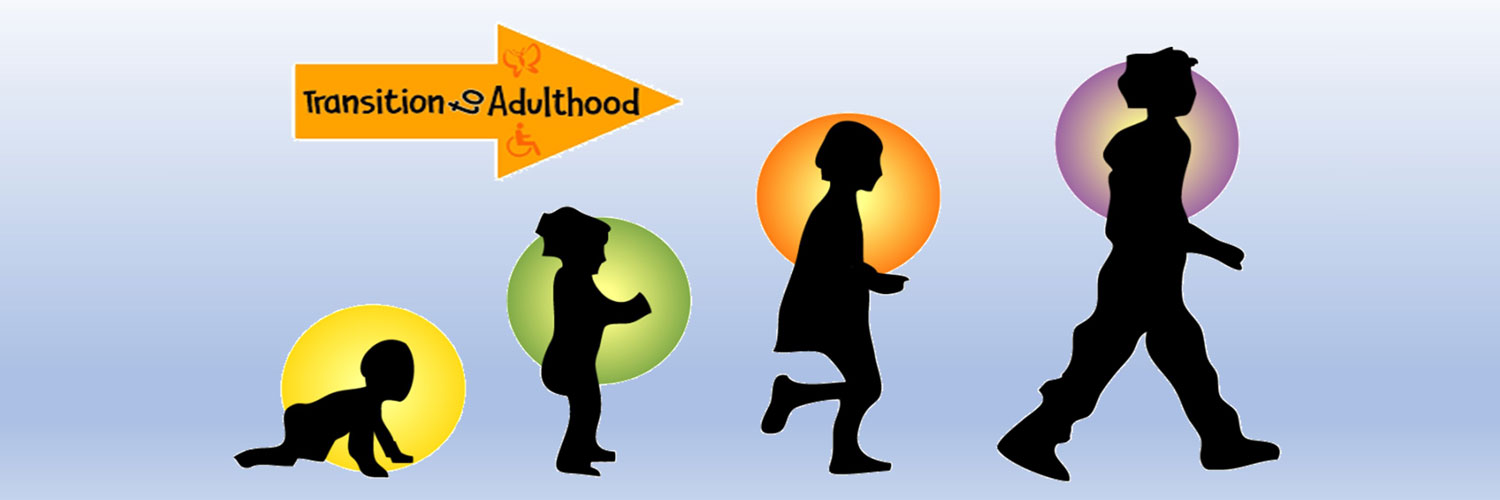Turning 18 is an important milestone for any child because this is the magic age when the child transitions into adulthood. When a child turns 18, parents lose the ability to make decisions for their children because their adult child is now legally responsible for themselves. Children with special needs face complicated legal issues as they become adults since they may be unable to make decisions or care for themselves. Therefore, it is vitally important for special needs parents to be prepared before their child reaches this monumental milestone.
As a special needs parent, there are several things you can do to ensure that your child is set up for success. The following is a list of a few things that can help you get started on this journey.
Legal Decision Making
There are a few different options to choose from when considering legal decision making for an adult with disabilities. The option you choose will depend on the adult child’s individual capacity to make decisions and care for herself or himself. In general, courts require the least restrictive options to be considered first. Here are a few common options:
Power of Attorney

Power of Attorney is a legal document in which your adult child appoints you, their parent or guardian, to make certain decisions on their behalf. Obtaining a power of attorney is relatively easy and low-cost if the child has the capacity to understand its significance and is willing and able to grant you the power. This option offers a great deal of flexibility as well. Your child can grant you the authority to make certain decisions while retaining control over other areas of their life. For example, the parent or guardian may be given the ability to control finances or medications while the adult child retains the ability to choose where they live, where they work, or who they want to vote for. These differences may be determined by the type of power of attorney you choose. For example, you may choose a limited power of attorney, a medical durable power of attorney or a financial power of attorney.
Guardianship & Conservatorship

Guardianship: Guardianship is determined through a court process. Guardians are appointed and overseen by a court. Guardians are responsible for protecting the person whereas a Conservator is responsible for protecting money and property for the protected person. In Colorado, the law separates guardianships and conservatorships.
For a court to appoint a guardian, it must first determine that the individual for whom a guardianship is sought is incapacitated and unable to make decisions necessary to protect themselves from harm. The courts give guardians the authority to make decisions for the protected person, or “ward”. This includes the ability to make decisions about residence, support, education, medical treatments, end-of-life decisions, and the overall welfare of the protected person. While the guardian has the authority to make final decisions on these matters, the guardian is a “fiduciary” who has the duty to act primarily for the benefit of the protected person. As such, the guardian should consider the wishes and desires of the incapacitated person whenever making decisions.
Prior to completing guardianship paperwork:
- Get a credit check for you and the other guardian.
- Complete a background check for you and the coguardian: https://www.cbirecordscheck.com/Individual_New.aspx
- Get a letter from a physician, detailing diagnoses and the need for guardianship.
- Download and complete all paperwork and be ready to file by the first business day after the 18th birthday.
Once paperwork has been approved, you’ll get a notice of hearing. Be prepared to have your child formally served (as in by a sheriff) once you have a hearing date.

Conservatorship: An adult conservatorship is a legal process in which a conservator is appointed to make decisions about an adult’s financial world, including property and estate. An adult’s guardian and conservator are often the same person, but need not be, and one does not have to seek the appointment of both. If guardianship and conservatorship is sought by the parents, an official opinion from a physician must be presented to a court stating the reasons these are necessary.
In some cases, a limited conservatorship may be granted so that the conservator has limited ability to control only certain aspects of financial or business interests. For example, a limited conservatorship may grant specific authority to manage and pay medical and household bills.
Conservatorships require significant maintenance. A full conservator is required to post surety on a bond with the court, annually report on all income received on behalf of the adult child, and annually report on all funds expended on behalf of the adult child to the local Commissioner of Accounts. This means a conservator must collect and keep records of all receipts, checks and bills so he or she can account for all the child’s funds “to the penny.” Without help from an accountant or financial planner (which can be costly), this can be time-consuming.
Special Needs Trusts

It is important to consider financial protection for a person with disabilities as early as possible. You do not need to wait until the child turns 18 to start this process. Without protections in place, an inheritance could terminate your child’s governmental benefits. To protect your child financially, you might consider updating your estate planning documents and establishing a special needs trust. A special needs trust allows the disabled individual to keep both an inheritance as well as public benefits.
To understand how the Special Needs Trust can shelter inheritance and personal injury funds, it is necessary to understand the concept of availability. Availability is the standard used by governmental agencies to determine whether assets (including trust funds) will be counted for purposes of determining asset or resource eligibility for public benefits. As indicated above, an individual cannot have more than $2,000 in non-exempt assets to qualify for SSI and most Medicaid programs. In general, if an applicant or recipient can gain access to an asset or resource, it will be deemed available to that individual for purposes of resource eligibility and, therefore, will be countable against the $2,000 maximum. If, however, access to such funds is restricted such that only the trustee, a court or a third person (and not the disabled child beneficiary) has authority to make distributions from the trust, then such funds are deemed legally unavailable to the beneficiary and are not counted for public benefit eligibility purposes. Simply put, Special Needs Trusts are drafted to make the trust funds unavailable for purposes of Medicaid eligibility.
Social Security

SSI Income Requirements Change
Supplemental Security Income (SSI) is a federal government program that provides cash assistance to low-income individuals who are disabled, blind, or elderly and have limited income (i.e., money earned from work, received from other sources, and receiving free food or shelter) and few assets. SSI is a cash program. Every eligible individual gets the same amount of money each month regardless of the nature of the qualifying disability, the level of their needs, and the city and state where they reside.
If your child received SSI benefits before their 18th birthday, the standards under which they qualified for the benefits will change. Before age 18, the Social Security Administration (SSA) attributes part of both parents’ (legal guardians’) income to their child’s resources to determine their child’s eligibility. Upon the child’s 18th birthday, the parents’ income is no longer considered when determining the means-based eligibility limits. This means your child will need to re-apply for SSI benefits to determine adult eligibility.
If your child did not qualify for SSI benefits as a minor, they may qualify for SSI as an adult because only the adult applicant’s income and assets are being used to determine their financial eligibility.
For those 18 and over to be eligible for SSI, there must be a medically determinable physical or mental impairment (including an emotional or learning problem) that:
- Results in the inability to do any substantial gainful activity; and
- Can be expected to result in death; or
- Has lasted or can be expected to last for a continuous period of not less than 12 months.
Special needs parents should understand that their child’s income and assets may disqualify them from programs such as SSI. Therefore, it is important to explore ways to protect your child’s financial assets. For example, you may consider setting up a Representative Payee for your child’s SSI benefits, or you might consider setting up an ABLE account.
Representative Payee for SSI
The Social Security Administration (SSA) will determine who will serve as the payee for your child’s Social Security benefit. SSA may decide that your child is able to serve as their own payee or may appoint a Representative Payee for your child. This decision is made with the Social Security representative assigned to your child’s application. It is important that a Representative Payee not comingle their assets and your child’s Social Security Benefits. Therefore, a separate bank account in your child’s name will be necessary for them to receive their benefits.
ABLE Accounts
ABLE accounts allow an individual to maintain some income and resources above the amount typically allowed for recipients of governmental benefits to help them continue to receive those benefits. It can also allow your child the opportunity to have some financial independence and learn to manage their own finances without the risk of significant financial losses or abuse. There are limits on how much can be deposited into an ABLE account each year and on what the funds from the account can be used. ABLE accounts are also a good tool when used in combination with a Special Needs Trust to provide financial protection and independence for your child.
School Transitions

Every high school student with a disability who has an IEP is entitled to receive transition services and planning once they reach the age of 15, and transition services are mandated under the Individual with Disabilities Education Act (IDEA (P.L. 101-476)). Transition services are intended to help students with disabilities plan for life and work after high school. These services should be included as a part of the IEP and should describe the student’s plans and goals after graduation. Together, the school and the Division of Vocational Rehabilitation (DVR) will develop a plan to help the student attain his or her goals.
It is extremely important to start talking about plans after high school as soon as possible so that the transition team can begin working on a plan early in the high school career. Take advantage of all the programs available so that your child is as prepared as they can be. Some of the programs available include Pre-employment Transition Services, the School Work Alliance Program (SWAP), and Vocational Rehabilitation (DVR) assistance. In some cases, as with DVR, assistance can continue even after graduation.
Transition services planning can include a variety of topics depending on the individual student’s needs. The following are just a few of the items that can be addressed:
- Post-Secondary Education plans
- Vocational Training and Employment Options
- Future Living Arrangements
- Continuing and Adult Education
- Day Program Services
- Community Participation
Start the conversation with your child’s IEP team early so that planning and training can begin as soon as possible. Early planning may allow your child to explore a wider variety of options and develop a wider set of skills to enhance success after school.
Adult Medicaid Waivers
Around the age of 15, it is important to start educating yourself about Adult Medicaid Waiver Services. Once a child turns 18, their eligibility for Medicaid services is no longer dependent on the parent’s financial status. The adult child’s income and assets impact their eligibility to receive state benefits. Special needs trusts can be put in place to shelter funds from the individual allowing them to access public services such as Medicaid.
If your child is currently receiving Medicaid waiver services through one of the children’s waivers (HCBS, HCBS-CES, HCBS-CLLI, HCBS-CHRP), the waiver services will terminate on their 18th birthday. Familiarize yourself with the Adult Waiver options and apply early. Adult waivers can have extensive multi-year waitlists, so it is extremely important to have an idea of which waiver will best suit your individual needs and get on any applicable waitlists.
There are several adult waivers to choose from including:
- Persons with Developmental Disabilities Waiver (HCBS-DD)
- Supported Living Services Waiver (HCBS-SLS)
- Persons with Brain Injury Waiver (HCBS-BI)
- Persons who are Elderly, Blind and Disabled Waiver (HCBS-EBD)
- Community Mental Health Supports Waiver (HCBS-CMHS)
- Complementary and Integrative Health Waiver (HCBS-CIH)
Currently, the HCBS-DD waiver has a very long waitlist, however, if your child is on the HCBS-CES waiver prior to turning 18, they will bypass the waitlist for the HCBS-DD waiver. Please note that enrollment from CES to the DD waiver is not automatic and members still need to apply and then they will bypass the waitlist. Therefore, if this is the best option for your child as an adult, it is important to either get on the waitlist as early as possible, or make sure your child is on the HCBS-CES waiver prior to the 18th birthday.
Some of the adult waivers offer the ability to continue to be your child’s paid family caregiver. The two service delivery options in Colorado that let Medicaid recipients and their family members manage and direct services and supports they need to live at home are: Consumer-Directed Attendant Support Services (CDASS) and In-Home Support Services (IHSS).
The following adult HCBS waivers include CDASS as an option:
- Supported Living Services Waiver (HCBS-SLS)
- Persons with Brain Injury Waiver (HCBS-BI)
- Persons who are Elderly, Blind and Disabled Waiver (HCBS-EBD)
- Community Mental Health Supports Waiver (HCBS-CMHS)
- Complementary and Integrative Health Waiver (HCBS-CIH)
The following adult HCBS waivers include IHSS as an option:
- Persons who are Elderly, Blind and Disabled Waiver (HCBS-EBD)
- Complementary and Integrative Health Waiver (HCBS-CIH)
The last way to continue to be a paid family caregiver when your child becomes an adult is through the HCBS-DD waiver. Under this waiver option, a parent or family member can become a host home for their child and receive a monthly stipend for providing all the Medicaid recipient’s care needs.
Other Considerations
Here are a few other things that you should consider as your child approaches their 18th birthday:
- Obtain a state ID for your child
- If your child has any bank accounts, make sure that your name is also on the account
- Have a discussion with your child’s medical office and supply any needed documents (such as guardianship or power of attorney/durable medical power of attorney) so that you do not lose access to medical records upon their 18th birthday. Most of the appointment scheduling and communication with physicians is done electronically, and if you do not have the required documents on file, you will lose the ability to access these portals.
- If your child has the ability to live independently but will need help affording rent, you may want to consider applying for Section 8 housing. Section 8 is a program that helps families with very low income to pay their rent. If your child qualifies based on their income, you can help them find their own housing. The Housing Authority is supposed to check to make sure it’s a safe and healthy environment, and then they will pay part of the rent (a voucher). Your child will not pay more than 30-40% of their income on rent. The waitlists are often very long, so you may want to get on the waitlists for several different towns. You can get on a waitlist by contacting your local Public Housing Authority.
About this Article: We hope you find this article informative, but it is not legal advice. You should consult your own attorney, who can review your specific situation. There are many attorneys in Colorado that offer free to low-cost legal assistance to persons with disabilities.

